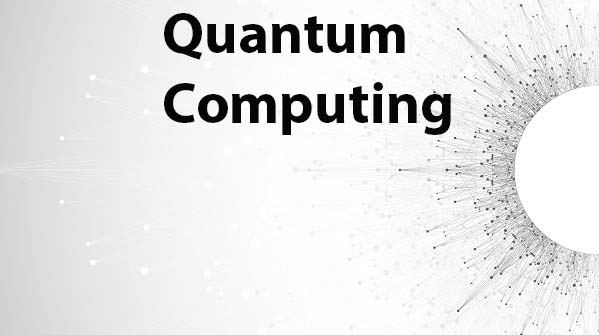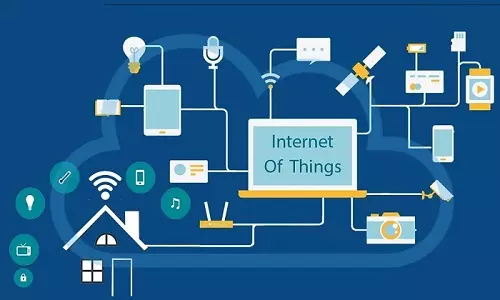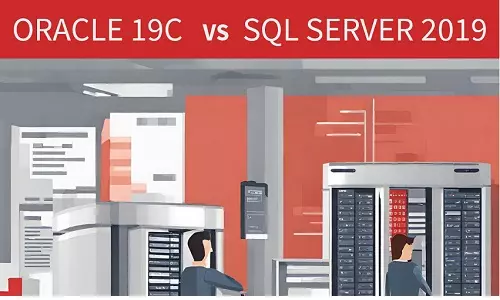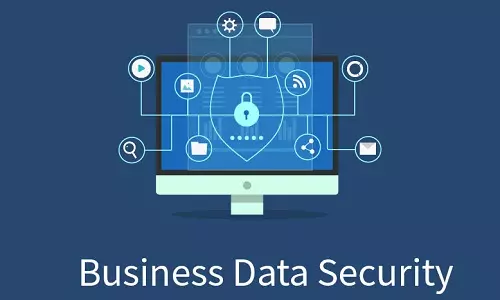Quantum Computing: Quantum Computing Explained
Understand the development of quantum computers. Explore the applications and use of quantum computing in fields, including IoT, Encryption and Cryptography, Artificial Intelligence (AI), Big data, Scientific Research, and More.

Introduction to Quantum computing
We are used to a life of binary of an element and its opposite; one of the other - black or white, yes or no, day or night, one or zero. A life of definite. This simple explanation brings forward the existence of classical computing and quantum computing. Today's computing power is provided by classical computers which are becoming inferior to quantum computers as the latter are being unveiled often. Quantum computing has been based on quantum physics and classical computing. Although significant strides have been made in the development and realization of quantum computers, a fully operational quantum computer is yet to be released and an exact date cannot be said. Quantum computing will provide unimaginable computing power and analytical speeds that cannot be matched by any classical computer existing today. This development will be able to provide new pathways for the development of other areas such as medicine, climatic monitoring, cryptography, and encryption among others. This research has discussed the current state of quantum computing, its development and fields that will greatly benefit from the presence of quantum computing.
A quantum computer was first identified as superior to classical computers in the 1980s by lead physicist Richard Feynman. However, the first rudimentary quantum computer can be traced back to the late 1990s.
Over the years, thorough research on quantum computing, the advancement of quantum physics, and the development of complex computer architectures have fast-tracked the deployment of a more superior and advanced quantum computer. Quantum computing refers to the application of quantum mechanics to achieve a supercomputer's processing power.
Classical computers use bits to represent data; that is 1's and 0's. However, a quantum computer uses qubits (quantum bits) which can be a 0, a 1, or both at the same time. That exploits a principle of quantum physics referred to as superposition or a quantum state. Quantum computing creates new possibilities and new ways to approach problems that classical computers have difficulty handling.
Developments in quantum computing
At the time of publishing this article, companies, led by Google, Intel and IBM were spending billions of dollars every year trying to develop the world's superior quantum computer. The current quantum computers have around 100 qubits at most, with the targeted number being 1000 qubits. This number puts us a few years away from the target. With the current trend in the development of computer infrastructure, humans have developed intuition to better understand nature. Many consider this as the sole goal driving the world towards quantum computing.
Today, there is a significant development in the Information Technology field with several technologies such as human genome sequencing, artificial intelligence, machine learning, robotics, deep learning, and even computer vision emerging as the lead. Each of these fields requires computers with superior processing speeds and the capability to run their algorithms, perform simulations and assist with computations as well as cryptography. This, further, is an incentive for companies to invest in quantum computing.
Applications of Quantum Computing
1. Quantum Computing and Internet of Things (IoT)
Currently, huge technology companies are relying on supercomputers to perform complex computations and solve problems. However, with huge funds being put into quantum computing research, supercomputers will soon be inferior. Almost every aspect of our lives today is integrated with IT. Internet of Things (IoT) is used to refer to the extension of internet connectivity into our everyday physical devices. This connectivity has enabled different devices to communicate with each other in new and complex ways creating what is referred to as smart devices
This exponential adoption of the Internet of things (IoT) into our daily lives will demand computer infrastructure that can handle large amounts of data, perform calculations, run simulations and provide structured statistical analysis on the data collected. A quantum computer will provide optimized complex computational and processing power required to enhance the integration of devices into our daily lives.
One of the current concerns of IoT is privacy and security. However, quantum computing contains the concept of encryption. With encryption, it is possible to run smart devices without the fear of the users' data being compromised as well as provide a faster validation and verification process.
2. Quantum Computing: Encryption and Cryptography
In addition to Internet of Things (IoT), many important aspects of IT rely on public key cryptography and encryption to safeguard a user's data when he or she is interacting with information pools such as E-commerce websites, banking platforms as well as social media. Cryptography and encryption techniques are based on mathematical algorithms that are difficult to break
Currently, the most preferred encryption technique is the RSA2048. A powerful classical computer can take millions of years to break it. A modern quantum computer can take up to 14 minutes. By estimation, by 2030, quantum computers will be able to break RSA2048 and RSA4096 by 2035.
Quantum computers are far superior and will be able to break the currently used public-key cryptosystems. This would seriously compromise the confidentiality of the information and communication online. Other than quantum computers being used to break encryption algorithms, there is a plan to ensure that they will be used to create encryption protocols and algorithms that are safe from both quantum and classical computers as well.
As research and development are put in realizing the first full-scale quantum computer, there is a significant contribution from security companies and organizations to help keep information and communication safe from the powerful computers. Microsoft has previously highlighted its participation in security through encryption and cryptography. Post-quantum cryptography is a term that is used to describe how existing cryptography protocols will be integrated with quantum cryptography to ensure security from the quantum computers is maintained.
3. Quantum Computing and Artificial Intelligence (AI)
Quantum computing has been argued to be the center of all major technological advancements including artificial intelligence (AI) and neural networks. With the former, there is a significant development with companies such as Google, Amazon, and Tesla taking lead in developing AI and AI-dependent devices. Most scientists and other contributors have identified artificial intelligence as the first-ranked priority once powerful quantum computers are available with the mindset that quantum computing will be able to push the boundaries and limits of AI's capabilities.
4. Quantum Computing and Big Data
By 2016, over 3.5 billion users accessed the internet. In 2018 the number grew to 3.9 billion users. As of April 2022, over 5 billion users, representing over 63.1% of the global population, had access to the internet. These numbers are expected to rise every year.
From these statistics, we can estimate the amount of data being uploaded daily on the internet. It is estimated that over 2.5 exabytes of data are created daily with most of it being unstructured data .
Today, this massive production of data has led to the creation of a new emphasis topic in IT: big data. Currently, companies and organizations rely on classical supercomputers to process this data and provide statistical analysis.
Quantum computing will have a big role in processing this data and providing the necessary feedback. Coupled with artificial intelligence, big data will be easy to process; quantum computers will be able to handle the big data sets and artificial intelligence will be able to analyze this data to a granular level. Research organizations rely on big data analysis and reporting to expedite research cases. In the medical field, for instance, research organizations have made significant progress in cancer research among others. The integration of a more powerful quantum computer and artificial intelligence will see computations and analysis done quickly and effectively hence fast-tracking the research and providing results quickly and in record time.
Unstructured data is the largest data set and it is increasing every day in terms of size. People are willingly submitting their data through forms and even social media. In research, this data is vital. Quantum computers can process large chunks of unstructured data and be able to spot patterns in time that no classical computer can today. Similar patterns from different data sets can be integrated and general analytical reports generated. Such reports will be crucial to sectors such as medicine, manufacturing, transport, education, security, and even climate monitoring.
5. Quantum Computing and Scientific Research
Biological, chemical, and physical data and information simulation is a big field that will benefit from the realization of quantum computing. Although large quantum computers are yet to be developed, the current existing quantum computers have played a big role in making a huge breakthrough in the scientific field. Despite its limited resources, IBM's 20 qubits quantum computer was able to make significant chemistry discoveries through its ability to run calculations efficiently and with a high chemical accuracy that no classical computer can achieve. Quantum computing not only allows quantitative but also a qualitative description of the electronic structure of a molecule. This can help chemists have a better understanding and chemical structures.
The ultimate goal of quantum development is integrating about 1000 qubits in a quantum computer. With this processing power, researchers can discover materials that are efficient, reliable, and environmentally friendly such as energy sources, create personalized medicine based on an individual's genetic makeup, and more. It may sound like fantasy; however, let's not forget a critical purpose of quantum computing - push the limits of natural phenomena.
6. Quantum Computing and Transportation
The future of quantum computing cannot be discussed without highlighting its benefits in streamlining transportation especially in easing traffic flow. In 2017 Volkswagen had a pilot test in Beijing where they attempted to optimize the traffic flow of taxis by using calculations and probability simulations using a quantum annealing computer. Although the results were considered low beyond expectation, Google re-defined the problem and has begun offering traffic solutions using its program, Google AI. Traffic monitoring and control is one field that takes in large data sets where a myriad of variables, changing every time, have to be considered. A quantum computer, with its superior computation power, can process this data, run real-time predictive algorithms and be able to offer real-time solutions on the best traffic routes for users.
7. Quantum computing and the Climate
Quantum computing has been pointed out to be the technology that will help us understand nature and climate. Over the years, scientists have argued over nature and climate and how humanity has consistently taken part in its destruction which has made climatic change today's pressing issue. Quantum computers will play a role in ensuring nature and better climatic conditions are restored. Through a quantum computer, data analysis of the atmospheric variables can be carried out, and reflective statistics and possible solutions given. Unlike classical computers, quantum computers can capture and produce highly complex scenario models of real-world climatic conditions. The requirement of applying quantum computing is due to the attribute of nature being multifaceted and variable. This would help us make a better interpretation of the world around us.
Quantum computing vs. Classical Computing
Classical computing, also known as binary computing or conventional computing, involves the storage of information and data in bits that are represented logically either as 0 or 1. Today, most people and businesses use classical computers to perform their operations and tasks. Most of the existing computer technology and infrastructure are built to be used in a classical computing environment and setting. One of the main reasons why classical computers are widely used is due to their availability and cost. Classical computers come with diverse technological features which lead to a variance in price. This variance makes them available to many people worldwide. However, quantum computers have an advanced and complex computer architecture making them available to just very few companies such as Intel and IBM. However, users can interact with quantum computers as their resources have been made available through cloud computing. For instance, IBM has given access to its quantum computing infrastructure through cloud computing. One can learn, develop, and run programs using IBM's quantum programs and process.
Quantum computing differs from classical computing mainly in how data is stored. Whereas quantum computing applies the superposition principle using qubits (use of 0, 1, or both at the same time), classical computing uses the binary method, where data is stored as either a 0 or a 1. This gives quantum computers the ability to store data in an infinite, continuous number of states, a factor attributed to their robust processing power. Classical computers and quantum computers have different ways of processing data. In classical computing, calculations are considered deterministic; despite the number of repetitions done, the output will be the same when the input remains constant. In quantum computing, similar inputs can produce multiple different outputs for similar inputs since their calculations are probabilistic. In a nutshell, classical computing is based on classical physics while quantum computing is based on quantum mechanics.
Conclusion
Quantum computing will bring about a paradigm shift in the technology industry. Although not every business or organization will require running processes in a quantum computer for its day-to-day tasks, it will be advisable to adopt and integrate quantum processes such as quantum cryptography and encryption. This will ensure that sensitive information is not compromised through malicious attacks.
Quantum computing has been deployed in the cloud. Companies and organizations such as Google, IBM, and Amazon are investing in the cloud, driven by quantum computing. Quantum computers are far superior to classical computers. However, the ultimate powerful quantum computer is yet to be built. It is argued that a 1000 qubits quantum computer will be second to none in terms of computational power, processing speed, and accuracy. However, companies and even large organizations are injecting resources to realize the idea of quantum computing on large scale. Currently, no one has a verifiable prediction on when we can expect a large-scale quantum computer. However, based on the fact that there are small-scale quantum computers operating today, we are fast-tracked to building one.







